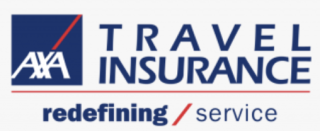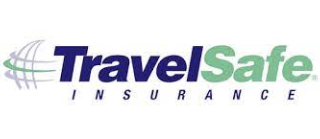14 Best Travel Insurance Companies in May 2023

Many or all of the products featured here are from our partners who compensate us. This influences which products we write about and where and how the product appears on a page. However, this does not influence our evaluations. Our opinions are our own. Here is a list of our partners and here's how we make money.
Table of Contents
- Factors we considered when picking travel insurance companies
- An overview of the best travelers insurance
- Top travelers insurance options
- What does travel insurance cover?
- What’s not covered by travel insurance?
- How much does travel insurance cost?
- Do I need travel insurance?
- How to choose the best travel insurance policy
- What are the top travel destinations in 2023?
- More resources for travel insurance shoppers
Whether you’re looking for an international travel insurance plan, emergency medical care, COVID coverage or a policy that includes extreme sports, these are the best travel insurance providers to get you covered.
If you already have an insurer in mind or just want to learn more about some of the best travel insurance companies, take a look at our top 14 list of companies below.
This is the shortlist of the best travel insurance options in May of 2023:
Factors we considered when picking travel insurance companies
We used the following factors to choose insurance providers to highlight:
Breadth of coverage: We looked at how many plans each company offered, plus the range of their standard plans.
Depth of coverage: We considered two data points to get a sense of how much each company pays out for common travel snafus: the maximum caps for trip cancellation and trip interruption claims.
Cost: By looking at the costs for basic coverage across multiple companies, we were able to determine an average cost for shoppers to benchmark plan prices against.
Customizability: While standard plans can cover a lot of ground, sometimes you need something a little more personal.
An overview of the best travelers insurance
We looked closer at quotes from various companies for a 10-day trip to Spain in September 2023. The traveler is a 35-year-old woman from Utah who spent $2,000 total on the trip, including airfare.
On average, the price of each company’s most basic coverage plan was $81. These policies did not include any optional add ons, such as Cancel For Any Reason coverage or pre-existing medical condition coverage.
Company name | Basic coverage cost | Recommended for... |
|---|---|---|
Allianz Global Assistance | $91. | Economical travelers who want to add on cheap rental car protection. |
Travel Guard by AIG | $119. | Those traveling with pre-existing medical conditions and cruise goers. |
USI Affinity Travel Insurance Services | $80. | International students and cruise goers. |
Travel Insured International | $72. | Gadget heads, superfans. Plans cover traveling with expensive electronic equipment and high-cost ticketed events. |
World Nomads | $81. | Thrill seekers. Plans automatically cover 200+ adventurous activities. Plus, if you're currently traveling and want to extend your trip, World Nomads lets you buy and extend coverage. |
Berkshire Hathaway Travel Protection | $81. | Customizers and cruise goers. |
Travelex Insurance Services | $90. | Nervous nellies. Add on the Medical Coverage upgrade, which includes an additional $50,000 in medical expense coverage and $500,000 in medical evacuation coverage on top of what is already included. |
Seven Corners | $75. | Traveling athletes. Seven Corners offers medical only protection, plus options to cover sports and golf equipment rental. |
IMG | $59. | Long-term budget travelers. The most basic package covers trips up to 180 days and offers 100% trip cancellation coverage and 125% trip interruption coverage. |
AXA Assistance USA | $61. | Risk-conscious but economical travelers who want basic protection. |
AAA | $106. | Anyone looking for coverage. You don’t have to be an AAA member to buy a policy. |
Tin Leg | $64. | Those who have a lot of time on their hands to compare policies and look for bargains. |
TravelSafe | $79. | U.S. residents shopping for single-trip coverage. |
HTH Insurance | $74. | Travelers searching for group trip coverage, including missionaries and crew. |
Top travelers insurance options
Let's take a closer look at our 14 recommendations for travel insurance this month.

Allianz Global Assistance
What makes Allianz Global Assistance great:
Annual and single-trip plans.
Plans are available for international and domestic trips.
Stand-alone rental-car damage product is available.
Here’s a snippet from our Allianz Global Assistance review:
“Allianz Global Assistance has five travel insurance plans for single trips, including a plan that’s mainly focused on emergency medical coverage. The OneTrip Cancellation Plus plan is geared toward domestic travelers who are looking for trip cancellation, interruption and delay coverage but don't need post-departure benefits like emergency medical or baggage loss. This plan is Allianz’s most affordable option.”
For our test trip, Allianz Global Assistance’s basic coverage cost $91, a little more than $10 above average.

Travel Guard by AIG
What makes Travel Guard by AIG great:
Three comprehensive plans and a Pack N' Go plan for last-minute travelers who don't need cancellation benefits.
Flight accident insurance, medical evacuation plan and annual plans available.
Plan available for business travelers.
The Deluxe plan includes a pre-existing medical condition waiver as an add-on.
In our Travel Guard by AIG review, we write:
“While the Essential, Preferred and Deluxe plans all offer varying degrees of coverage for your trip, there are some things that won’t be covered by any of the plans. Examples include coverage for trips paid for with frequent flyer miles or loyalty rewards programs; baggage loss for eyeglasses, contact lenses, hearing aids or false teeth; and known events.”
Travel Guard by AIG offers basic insurance for $119, about 32% higher than average.

USI Affinity Travel Insurance Services
What makes USI Affinity Travel Insurance Services great:
Search comprehensive plan types by policy name, insurance needs and traveler type.
Medical and evacuation plans for international travel.
One annual plan with two levels of coverage to choose from.
The USI Affinity Travel Insurance Services basic plan is on par with average prices in the industry for our example trip.

Travel Insured International
What makes Travel Insured International great:
Comprehensive and medical-only plans.
Flight plans include coverage for missed and canceled flights and lost or stolen baggage.
What’s more, Travel Insured International coverage costs fall below average at $72.

World Nomads
What makes World Nomads great:
Comprehensive international travel insurance plans.
Coverage available for adventure activities, such as trekking, mountain biking and scuba diving.
Coverage for cameras, laptops and phones.
In our World Nomads review, Nerd Elina Geller reports that:
“The Standard Plan ($81) is a good choice for those who are satisfied with trip cancellation and interruption coverage of $2,500 or less, do not need rental car damage protection, find the limits to be sufficient and do not need coverage for certain adventure sports.”
World Nomads coverage hits average almost on the dot.

Berkshire Hathaway Travel Protection
What makes Berkshire Hathaway Travel Protection great:
One complete and two comprehensive plans offer cancellation, emergency medical coverage and emergency travel assistance.
Two of the plans offer compensation for missed connections and higher thresholds for lost baggage.
Coverage can be customized with add-ons like adventure sports coverage, car rental collision and more.
Basic Berkshire Hathaway Travel Protection will run you $81 — average. However, a basic AirCare plan is just $29 but only includes fixed amounts for its coverage.

Travelex Insurance Services
What makes Travelex Insurance Services great:
Three comprehensive plans available.
Coverage can be customized.
Two flight insurance plans available.
Basic coverage from Travelex Insurance Services cost $90 for our sample trip; this is about 11% more than average.
“Travelex Insurance Services offers six types of travel insurance plans. There are three types of comprehensive plans, two flight plan options and a post-departure plan. Its policies are underwritten by Berkshire Hathaway Specialty Insurance Company and Zurich Insurance Group,” as per our Travelex Insurance Services review.

Seven Corners
What makes Seven Corners great:
Comprehensive plans for U.S. residents and foreigners, including visitors and immigrants traveling to the U.S.
Annual, medical-only and student plans are available.
The NerdWallet Seven Corners review highlights the company’s annual travel insurance options.
“Seven Corners offers one annual policy called Travel Medical Annual Multi-Trip. The policy can be customized depending on how long you plan to be away from home for any one trip. You can travel as much as you like during the 364 days, so long as any one trip doesn’t exceed the option selected — 30, 45 or 60 days.”
Another plus: Seven Corners’ basic coverage plan for our trip to Spain costs $6 below average, around $75.

IMG
What makes IMG great:
Special medical insurance for ship captains and crew members, international students and missionaries.
Coverage for adventure travel.
Trip cancellation plans.
Search results page indicates if plans offer COVID-19 coverage.
IMG is also a good option for the budget-minded: its basic plans cost $22 less than average in our test. Adventure sports rider is available as an add-on.

AXA Assistance USA
What makes AXA Assistance USA great:
Three comprehensive plans available.
Optional insurance benefits can be added to Gold or Platinum plans, but vary. Rental collision can be added to the Gold; that and Cancel For Any Reason coverage can be added to the Platinum plan. No add ons are available for Silver-level policyholders.
AXA Assistance USA basic travel insurance coverage will run you $61 — $20 below average. If you add on CFAR or rental car damage coverage, be prepared to pay a little more.

AAA
What makes AAA great:
Don't have to be a AAA member to get a policy.
Coverage provided by Allianz Global Assistance, which is a reputable company.
AAA travel insurance plans are actually provided by Allianz Global Assistance but include AAA-exclusive features, such as SmartBenefits that provide payments on delayed bags without purchase receipts, missed port of call coverage that reimburses expenses associated with the ship’s changing or missing a scheduled stop, and rental vehicle return coverage should an illness prevent you from doing it yourself.
The TripAssist Choice plan will run you $106, which is about 24% more expensive than the average.
The NerdWallet review of AAA travel insurance highlights the company’s single-trip and annual plans. You don’t have to be a AAA member to purchase travel insurance.

Tin Leg
What makes Tin Leg great:
A multitude of plan options for every budget.
Option to add Cancel For Any Reason coverage to some plans.
Tin Leg’s Basic plan is going to run you just $64 and knock about $17 off the average policy. Keep in mind that you’ll pay a lot more if you shop for the most comprehensive coverage, and there are eight plans to choose from for trips abroad.
From our NerdWallet review, “When comparing Tin Leg travel insurance plans, there doesn’t seem to be much rhyme or reason as to which plans offer the most benefits or the largest payouts. For example, just because a plan is more expensive or has a seemingly better name doesn’t mean it automatically offers you more protections across the board.
Instead, the only way to figure out the plan that’s right for you is to compare them all, look at the plan details, and decide which features and coverages suit you and your travel style best.”

TravelSafe
What makes TravelSafe great:
Rental car damage coverage add-on is available on both plans.
Cancel For Any Reason coverage available as an optional add-on on the TravelSafe Classic plan.
TravelSafe’s Basic plan for $79 is right at the average mark for our example trip to Spain. Unfortunately, if you’d like to add on CFAR coverage, you have to purchase the TravelSafe Classic plan, which costs $103.
Additionally, multi-trip or year-long plans aren’t available, unless you’re a travel agent.

HTH Insurance
What makes HTH Insurance great:
Medical-only coverage and trip protection coverage.
Group trip coverage is available as well as long-term coverage for expats.
Single- and multi-trip medical insurance coverage as well as trip protection plans are available from HTH. The TripProtector Economy policy for $74 costs about $17 below average and provides comprehensive trip protection coverage.
HTH partners with GeoBlue for its medical coverage plans. You can even choose to insure group trips for educators, crew, religious missionaries and corporate travelers.
What does travel insurance cover?
Most travel insurance plans cover several trip protections, including accidental death and dismemberment, baggage delay and loss, emergency medical coverage and evacuation, trip cancellation, delay or interruption.
These protections can help you prepare for unexpected disruptions and expenses when traveling, and help you recover money paid upfront when booking a major trip.
For instance, if your flight is delayed or canceled, most travel insurance plans will cover an extra hotel night or taxi ride expense you incur as a result. Travel insurance can also help you recover, say, prepaid hotel and rental car reservations if you need to cancel your trip due to a covered incident.
Plans can also offset the cost of valuables in your luggage if the airline loses your bags.
Additionally, many comprehensive travel insurance plans have medical coverage to serve as an insurance policy if you get sick or injured while traveling, to offset costs not covered by your normal health insurance plan abroad.
Just like health insurance and car insurance keep you from having to incur large out-of-pocket expenses when you get sick or crash a car, travel insurance protections keep you from having to take a financial hit due to unexpected situations that come up during your travels.
Coverages like Cancel For Any Reason, pre-existing conditions coverage, rental car collision damage waiver or an adventure sports rider usually cost extra or must be added within a specified timeframe.
Cancel For Any Reason coverage allows you to recoup the upfront costs you paid for a trip, even if you’re canceling for a reason not otherwise covered by your travel insurance policy.
What’s not covered by travel insurance?
Typical travel insurance policies offer coverage for many unforeseen events, but as you do you research to select a plan, consider your individual needs. Though every plan differs, there are some commonly-excluded coverages.
Named storm. You typically can’t get coverage for a named storm if you purchased the coverage after the storm was named. In other words, if you have a trip to the Caribbean booked for Sept. 25 and on Sept. 20, a hurricane develops, you generally won’t be able to buy a travel insurance plan on Sept. 21 in hopes of getting your money back.
Activities done under the influence. Many plans also don’t cover activities performed under the influence of drugs or alcohol, or extreme sports. If the latter applies to you, you might want to consider a plan that has specific coverages for adventure junkies.
Excluded situations. Numerous plans exclude certain situations that don’t qualify as an acceptable reason to cancel and make a claim, such as fear of travel, medical tourism or pregnancies (unless you booked a trip and purchased insurance before you became pregnant). This is where a Cancel For Any Reason add-on to your coverage can be helpful.
Whether certain inconveniences are met. You can also run into trouble if you give up on a trip too soon: a minor (or even multi-hour) flight delay likely isn’t sufficient to cancel your entire trip and get reimbursed through your plan. Be sure to review what requirements your specific plan has when it comes to canceling a trip, claiming trip interruption, etc.
How much does travel insurance cost?
Travel insurance costs vary widely. The final price of your plan will fluctuate based on your age, length of trip and the destination.
It will also depend on how much coverage you need, whether you add on specialized policies (like Cancel for Any Reason or pre-existing conditions coverage), whether you plan to participate in extreme sports and other factors.
In our examples above, for instance, the 35-year-old traveler taking a $2,000 trip to Spain would have spent an average of $80 for a basic plan to get coverage for things like trip cancellation and interruption, baggage protection, etc. That’s about 4% of the total trip cost — lower than average, which typically ranges between 5-10% of the total trip cost.
If there were multiple members in a traveling party, or if they were going on a rock-climbing or bungee-jumping excursion, the costs would certainly go up.
On the high end, travel insurance can cost around 10% of the trip. However, considering many of the plans reimburse up to 100% of the trip cost (or more) for disruptions like trip cancellation or interruption, it can be a worthwhile investment if something goes wrong.
Do I need travel insurance?
It depends. Consider the following factors that might affect your decision. You’re young and healthy; all your bookings are refundable or cancelable without a penalty; your flights are nonstop; you’re not checking bags; and a credit card you carry offers some travel protections. In that case, travel insurance might not be necessary.
On the other hand, if you prepaid a large chunk of money for a nonrefundable African safari, you’re going on a Caribbean cruise in the middle of a hurricane season, or you’re going somewhere where the cost of healthcare is high, it’s not a bad idea to buy a travel insurance plan.
Here’s how to find the best travel insurance coverage for you.
If you’re thinking of booking a trip and not planning to purchase travel insurance, you may want to consider at least booking refundable airfare and not pre-paying for hotel, rental car and activity reservations. That way if something goes wrong, you can cancel without losing any money.
How to choose the best travel insurance policy
Selecting the best travel insurance policy depends on your individual needs, concerns, preferences and budget.
As you book, take a few minutes to consider what most concerns you. Is it getting stranded because of flight trouble? Having the ability to cancel for any reason you see fit without losing money? Getting sick or injured right before departure and needing to postpone the trip? Injuring yourself or falling ill while overseas?
Ultimately, you want a plan that protects you, your money and the large investment in your trip, but doesn’t cost too much, either.
Medical coverage. If your priority is adequate medical coverage abroad, you might want to look for plans with high limits for medical emergencies and medical evacuation.
Complex travel itinerary. If your itinerary has many flight connections, prepaid hotels and deposits for activities you can’t get back, prioritizing a plan with the best coverages for trip cancellations or interruptions may land at the top of your list.
Travel uncertainty. If you’re on the fence about a trip altogether and have nonrefundable reservations, you may want to select a plan with a Cancel For Any Reason coverage option, which can help you recoup about 50% to 75% of the costs. This helps provide peace of mind, placing the decision on whether to travel entirely in your hands.
Car rentals. If you’re renting a car, a collision damage waiver is often worth considering.
What are the top travel destinations in 2023?
The following 10 destinations are the top insured destinations in 2023, according to Squaremouth (a NerdWallet partner).
Mexico.
Italy.
Israel.
Bahamas.
France.
Costa Rica.
Spain.
Japan.
Antarctica.
Canada.
In 2022, travelers spent about 25.53% more on trips than they did before the coronavirus pandemic. As of May 2023, NerdWallet analysis determined travel prices are 18% higher than pre-pandemic. Each statistic makes a strong case for protecting your travel investment as you plan your next trip.
More resources for travel insurance shoppers
Bookmark these resources to help you make smart money moves as you shop for travel insurance.
How to maximize your rewards
You want a travel credit card that prioritizes what’s important to you. Here are our picks for the best travel credit cards of 2023, including those best for:
Flexibility, point transfers and a large bonus: Chase Sapphire Preferred® Card
No annual fee: Bank of America® Travel Rewards credit card
Flat-rate travel rewards: Capital One Venture Rewards Credit Card
Bonus travel rewards and high-end perks: Chase Sapphire Reserve®
Luxury perks: The Platinum Card® from American Express
Business travelers: Ink Business Preferred® Credit Card




